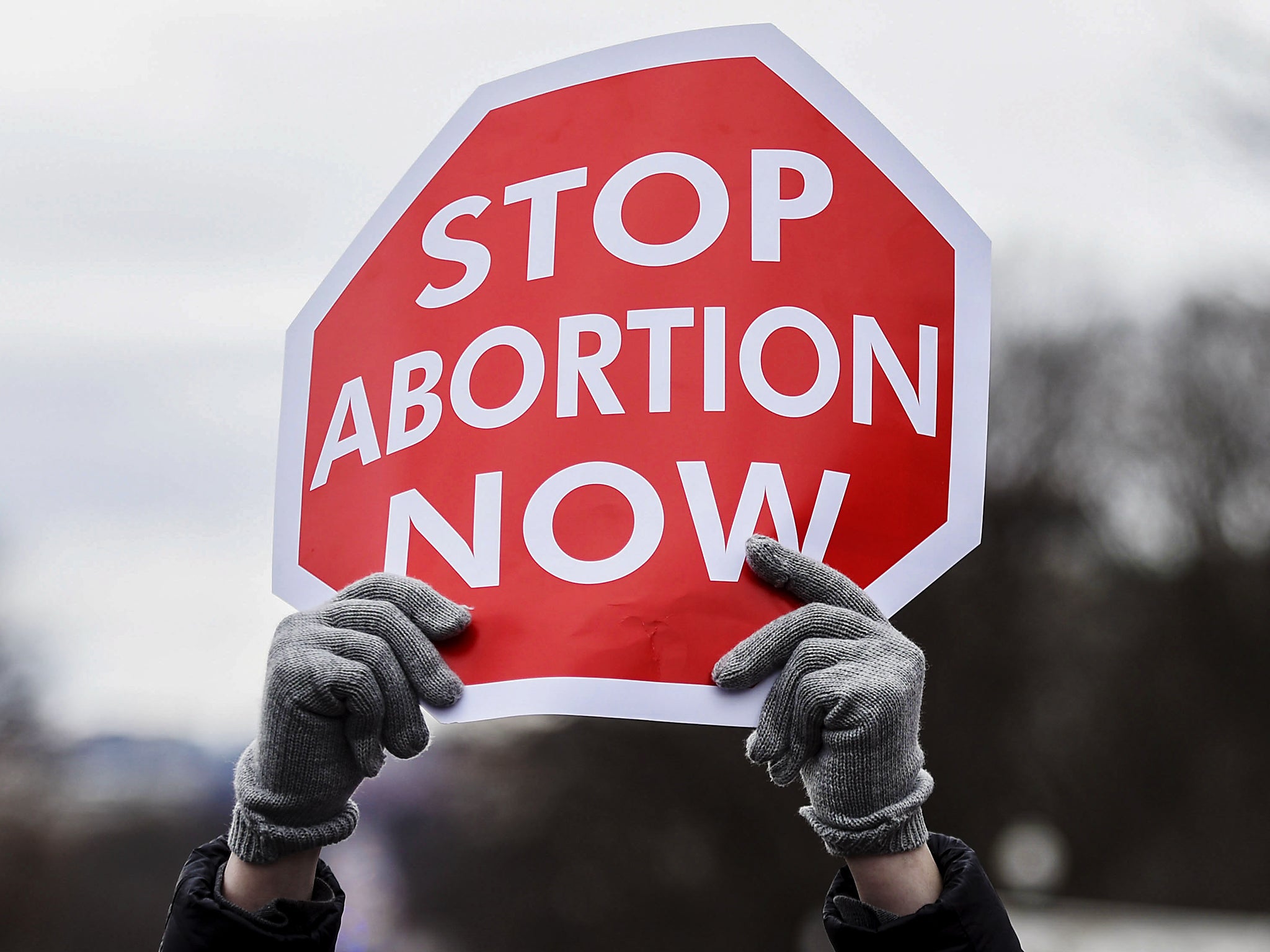Iowa Republicans back strict 'foetal heartbeat' test for abortions
Qualification would be among sternest in country if enacted and represent a major victory for conservative pro-life movement

Your support helps us to tell the story
From reproductive rights to climate change to Big Tech, The Independent is on the ground when the story is developing. Whether it's investigating the financials of Elon Musk's pro-Trump PAC or producing our latest documentary, 'The A Word', which shines a light on the American women fighting for reproductive rights, we know how important it is to parse out the facts from the messaging.
At such a critical moment in US history, we need reporters on the ground. Your donation allows us to keep sending journalists to speak to both sides of the story.
The Independent is trusted by Americans across the entire political spectrum. And unlike many other quality news outlets, we choose not to lock Americans out of our reporting and analysis with paywalls. We believe quality journalism should be available to everyone, paid for by those who can afford it.
Your support makes all the difference.Republicans in the Iowa Legislature are backing newly filed legislation that would ban abortions once a foetal heartbeat is detected, which would be the strictest ban in the country if enacted.
A GOP-led House committee had been set to vote on the provision Tuesday night but lawmakers later adjourned without a decision. It's expected to be taken up again Wednesday.
The measure was added to a separate bill that would ban most abortions at 20 weeks of pregnancy. The new version would include several abortion restrictions.
Democrats criticised the legislation in an afternoon press conference, though they don't have the legislative power to stop the bill's advancement.
“This is an all-out assault on women and a sneak attack from Republicans at the last minute,” said Democratic Rep. Beth Wessel-Kroeschell, a ranking member of the House Human Resources Committee that was set to take up the measure.
GOP Rep. Shannon Lundgren, a committee member and the bill's floor manager, said Democrats should not be surprised by the move. She also acknowledged backers of the bill are still securing enough support from other House Republicans.
“Overall, we are a pro-life caucus,” she said. “We've been talking about running a bill through our committee since the beginning of session. Republicans ran on pro-life issues.”
Planned Parenthood of the Heartland spokeswoman Rachel Lopez sent out a press release calling it the “most extreme and overreaching abortion legislation ever introduced in Iowa.”
If the new version of bill is passed, it would still require floor votes in both chambers before it could reach the Republican governor's desk. Ben Hammes, a spokesman for Governor Terry Branstad, did not immediately comment on support for the bill.
“Obviously, Governor Branstad is very pro-life,” Hammes said in an email. “But until we see legislation in its final form, we will reserve judgment.”
Ed Failor, a spokesman for Senate Majority Leader Bill Dix, said in an email, “we do not wish to comment on house actions as they move through their process.”
Among provisions in the amendment:
- A pregnant woman will need to wait 72 hours, or three days, before she can get an abortion.
- State health officials would be required to make available to a woman seeking an abortion reading material that encourages adoption. It would include language stating Iowa's interest in promoting adoption over abortion.
- A woman seeking an abortion would need to sign documentation acknowledging she was told a heartbeat was detected and the statistical probability of bringing the pregnancy to term.
- A woman or her spouse could sue a doctor in certain instances for performing an abortion. Parents could sue the physician if the woman was a minor or unmarried.
- A legal clause would state that if a part of the bill is found invalid, it does not affect other provisions.
The so-called “heartbeat bill” would prohibit most abortions once a foetal heartbeat is detected, which can be as early as six weeks into pregnancy. Ohio Governor John Kasich vetoed a similar measure late last year. In January 2016, the US Supreme Court refused to review lower court rulings overturning North Dakota's so-called foetal heartbeat law.
A handful of states have introduced heartbeat bills this year, according to the Guttmacher Institute, a research group that supports abortion rights.
If enacted in Iowa, the measure is expected to face legal challenges over its constitutionality. The US Supreme Court's 1973 Roe v. Wade ruling established a nationwide right to abortion, though states were permitted to restrict abortions after viability — the point when the foetus has a reasonable chance of surviving under normal conditions outside the uterus. The ruling offered no legal definition of viability, saying it could range between 24 and 28 weeks into a pregnancy.
Associated Press
Join our commenting forum
Join thought-provoking conversations, follow other Independent readers and see their replies
Comments